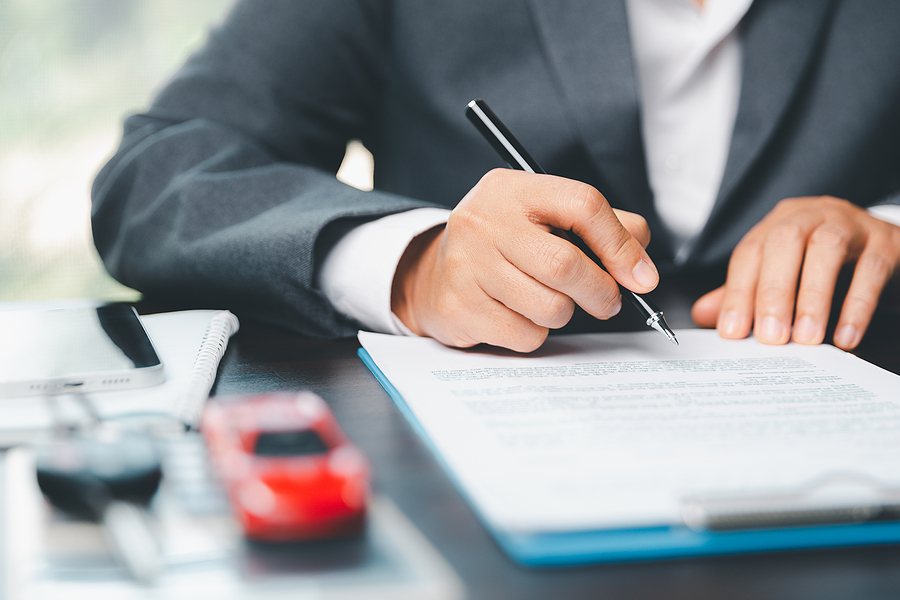The typical U.S. driver pays about $1,800 in car insurance annually (about $150 monthly). In Florida, drivers pay $1,128 on average yearly for minimum coverage and $3,183 for full coverage.
Car accidents can significantly impact your car insurance rates, and it’s essential to consider the financial implications beyond immediate repair costs. Knowing how accidents affect your insurance premiums can help you make informed decisions and take steps to mitigate potential rate increases.
The Eberst Law Firm can help if you’ve suffered an injury in a wreck that wasn’t your fault. We’ll work to uncover the evidence needed to prove you weren’t to blame. Not only will we work to help you obtain maximum compensation, but we may also be able to help keep your rates from increasing.
Schedule a free consultation by contacting us online or calling 1-888-CALL-JON.

Factors Affecting Insurance Rate Increases
Insurance is a very complex subject, as you’re probably already well aware. Policy rates, in particular, can be highly complicated. Here are a few of the many factors that determine whether or not your rate will increase after a car wreck.
Type and Severity of the Accident
Whether it’s a minor fender bender or a major collision, the type and severity of the accident play a role in how much your insurance rates may increase. The worse the damage or injuries, the more likely your rate will increase. The reason is the insurer might view you as a higher risk. Fair or not, that’s often how insurance companies work.
Accidents where you’re at fault usually lead to higher rate hikes than situations where the other driver is at fault. If you’re to blame, your premium could go up by about $750. If you have full coverage, you could pay an increase of more than $2,500 a year.
Driving History
Your driving history is another key factor. If you have previous accidents or traffic violations, your rates are more likely to increase after a new accident. On the other hand, a clean driving record can benefit you by keeping your rates relatively stable.
Your Insurance Company and Policy Details
Different insurance companies have varied rate structures and policies. Some companies may increase rates more than others after an accident. Additionally, the deductible you choose – the amount you pay out of pocket before insurance kicks in – can affect your premium. Higher deductibles often result in lower premiums.
Location
Where you live can also impact your rates. Some cities have higher rates due to increased accident risk or local regulations. For example, Miami is the most expensive city in Florida for car insurance, with the average policy costing $216 a month. Here’s a quick look at a few other cities and their average monthly cost.
- Fort Lauderdale – $208
- Tampa – $194
- Orlando – $171
- Apopka – $154
- Jacksonville – $148
- Sanford – $141
- Cape Coral – $128
Claims Frequency
The frequency of claims you make with your car insurance company can significantly impact your rates. Insurance companies use your claims history as a critical factor in determining the level of risk you represent as a policyholder.
When you frequently file insurance claims, insurance companies perceive you as a higher-risk policyholder. A history of multiple claims suggests you’re more likely to be involved in accidents that increase the insurer’s financial liabilities. You’ll pay higher rates as a result.
The Role of Personal Injury Claims
In the aftermath of a car accident, it’s not uncommon for individuals to file personal injury claims in addition to regular accident claims. While a regular accident claim focuses on the damages to your vehicle, a personal injury claim seeks compensation for injuries you may have sustained due to the accident. While both types of claims serve different purposes, they can each impact your insurance premiums.
When you file a personal injury claim, it can raise concerns for your insurance company. From their perspective, personal injury claims might indicate a higher level of risk, as they involve medical expenses, potential ongoing treatment, and the possibility of legal action. Insurance companies might view individuals who have filed personal injury claims as more likely to file future claims, which can lead to higher premiums.
Preventive Measures and Cost Mitigation
The best way to avoid a rate increase is to avoid being in a car wreck. But if an accident happens, there are a few ways you could keep from having to pay more for coverage. These include the following:
Safe Driving Tips
Practicing safe driving habits is essential. Defensive driving, obeying speed limits, and avoiding distractions can help you avoid accidents and maintain a clean driving record.
Post-Accident Recommendations
If you’re in an accident, report it to the police and collect evidence, such as photos and witness statements. Seek medical attention if necessary, as your health is a priority. Promptly reporting accidents can help insurance companies process claims more efficiently.
- Document and report accurately: Documenting the details of the accident and the extent of your injuries is crucial. This information can help ensure that you receive the appropriate compensation and that your insurance company clearly understands the situation.
- Seek legal advice: A skilled lawyer can protect your rights. They can investigate the accident to determine blame and then pursue compensation from the at-fault driver. They’ll negotiate with insurers to help you get the money you deserve.
- Consider the severity: If you’ve been involved in a minor accident and sustained minor injuries, filing a personal injury claim might not be worth it. Filing a claim could substantially increase your rates. It’s essential to weigh the potential compensation against the impact on your premiums.
Regular Policy Review
Regularly reviewing your policy can help you identify potential discounts and understand policy details. Consider raising your deductible if you’re comfortable paying more out of pocket in case of an accident. Doing so could lead to lower premiums.
Accident Forgiveness Policies
Some insurance companies offer accident forgiveness policies, so your rates won’t increase after your first at-fault accident. These policies can protect you from immediate rate hikes.
Talk to a Car Accident Lawyer if You’re Involved in an Accident
Please don’t hesitate to contact The Eberst Law Firm if a negligent driver hits your vehicle. You can schedule a free case review by calling 1-888-CALL-JON or using our online form.
